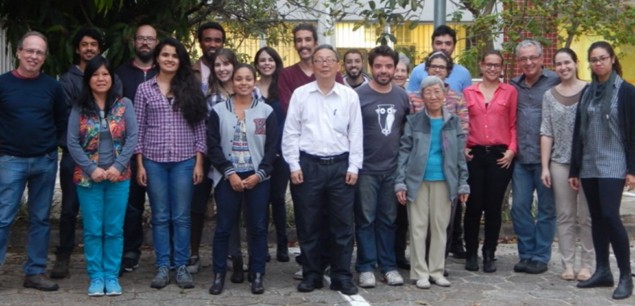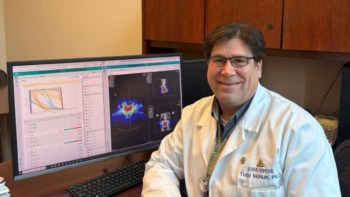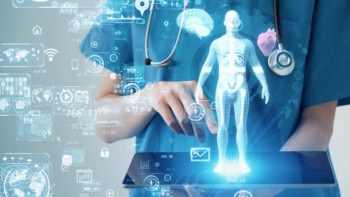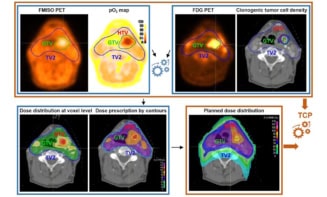
Mentoring – providing support and guidance to someone less experienced to help their professional and personal development – can help progress the mentee’s studies, increase their confidence, and inspire and motivate them to reach their career goals. In medical physics, where trainees must learn to work, research and interact with other professionals in a complex healthcare environment, mentoring could prove particularly valuable.
As both a science and a health profession, medical physics has a specific set of challenges. It calls for more than just excellent scientific abilities, with leadership skills another key requirement for burgeoning medical physicists eyeing professional success in the hospital environment. With this task in mind, Kwan Hoong Ng from the University of Malaya helped set up a global mentoring programme, Medical Physics: Leadership & Mentoring, to provide young medical physicists with guidance and support and help them to develop leadership roles.
“I have always been interested in helping and encouraging young people in their studies, career and life in general. I would like to see them assume leadership one day,” Ng explains. “The programme brings in leaders and pioneers, both within and outside medical physics, as mentors. These are people who have contributed to advances in healthcare through the application of physics to research, education and clinical practice.”
Writing in Physica Medica, a group of early-career medical physics professionals describe their personal experiences of participating in this programme. The study investigated the impact of this experience on their lives and careers and evaluated the importance of mentoring for young clinical and academic medical physicists.
Expert guidance
The programme comprised one permanent mentor (Ng) and 16 mentees from countries in Latin America and Asia. The mentees included medical physicists, postgraduate students and an early-career researcher, most of whom were working in radio-diagnostics or radiotherapy. Ng notes that he was supported at the start by Robert Jeraj, Eva Bezak and Tomas Kron, while additional mentors from several countries and institutions also joined the group to take part in discussions, share experiences and provide advice about a professional career in medical physics.

To address the geographic constraints, the programme employed “e-mentoring”, with video meetings and online group conference calls used to establish relationships between mentors and mentees from different areas and countries. This approach is particularly useful for supporting young professionals in developing countries.
“In developing countries, medical physics is just starting to develop. There is a lack of experienced seniors to guide and mentor early-career medical physicists,” Ng explains. “Leadership qualities are not being introduced and emphasized in academic programmes. There is therefore an urgent and crucial need to mentor them to be leaders and contribute to clinical service and research.”
Analysing the outcome
To evaluate their experiences of participating in this global mentoring scheme, all mentees in the group completed an online survey. Most of the group (81.3%) reported that the programme had a positive impact on both their personal and professional lives.
One of the main activities involved invited speakers (the temporary mentors) sharing knowledge of their area of expertise or professional experiences. Here, the mentees preferred to hear talks about the mentors’ personal experiences and leadership advice, rather than medical physics techniques. One positive outcome of such interactions was that more than half of the mentees communicated with mentors outside of these group meetings. “I would like to see mentor and mentee develop a lifelong partnership,” Ng points out.
Most mentees said that taking part in the programme had improved their leadership skills. And all of them believed that, on some level, participation changed their behaviour in challenging times and helped them to make decisions about their career. Most also agreed that the mentors served as role models for their professional careers.
The mentees were also encouraged to focus on skills such as article writing and conference participation. Half of the participants published at least one manuscript, with help or involvement of the mentors as co-author, while about 45% gave at least one conference presentation. For example, an initiative of female mentees, guided by one mentor, wrote an article entitled “Women in physics: pioneers who inspire us”.
Overall, participants in the mentoring group had nothing but positive impressions, concluding that the programme was beneficial to their careers and personal growth and should be encouraged. They recommend that mentoring for leadership should be implemented as an extracurricular activity whenever possible.
“Leadership and mentoring of medical physicists is essential to produce future innovative leaders,” says Ng. “This programme also promotes gender balance and equality, collaboration and intercultural understanding among the mentees. These are important features. The human values are also much appreciated by the mentees.”
As such, the team plans to expand and diversify the scheme with the participation of medical physicists from other continents, such as Africa and Europe. “This programme is gaining traction and we are getting more people to join us,” Ng tells Physics World.



